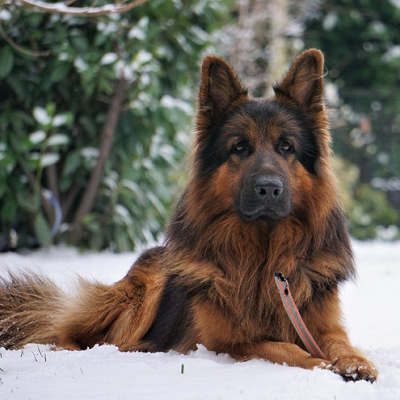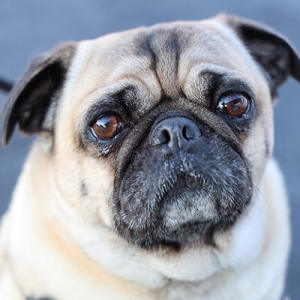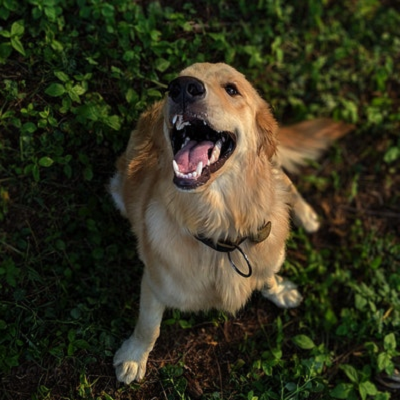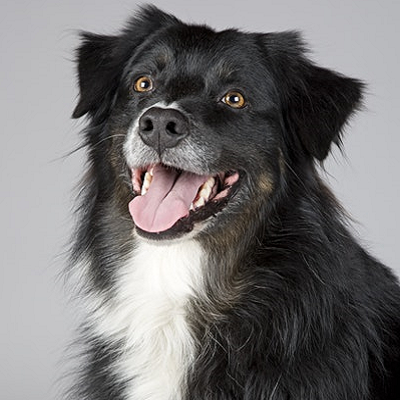We are committed to sharing unbiased reviews. Some of the links on our site are from our partners who compensate us. Read our editorial guidelines and advertising disclosure.
The 10 Best Dogs to Bring to Work
As more people return to the office in the post-pandemic world, a furry canine companion in the workplace can serve up a much-needed package of four-legged euphoria.
But each dog breed has its own marvelously unique needs and traits. That’s why we carefully analyzed an array of fuzzy contenders likely to be a smash hit in the office environment.
Let’s check out our top picks for the best dogs to bring to work.
Goldendoodle
A hybrid of a golden retriever and a poodle, goldendoodles are known for their hypoallergenic appeal due to their short, curly hair that hardly sheds. Plus, they’re often regarded as incredibly friendly, personable dogs that are easily trained. These two traits combine to make this breed a marvelous choice for busy office spaces filled with humans.
Corgi
Known as the favorite breed of Queen Elizabeth II, Welsh corgis (or simply “corgis”) are fluffy, short-legged dogs known for their intelligence, affection, and super cute, disproportionate appearance. Many people carve hearts into the fur on their corgi’s rear-end to double down on the cuteness.
Don’t let these irresistible heart-shaped bums distract from this breed’s role as working dogs, though. This natural urge means corgis need plenty of exercise and playtime when they aren’t interacting with people.

German Shepherd

Weighing up to 90 pounds, these sweethearts are often portrayed exclusively as fierce police dogs. The reality is quite different, however.
These large bundles of furry bliss can be incredibly peaceful, calm, and highly loyal pets to their parents. This means they may need some time to feel comfortable around strangers. But this is perfect in a COVID-19-influenced environment, where these four-legged German beauties can enjoy chewing on a toy six feet away from, say, a corgi sporting a heart-shaped heinie.
By signing up I agree to the Terms of Use and Privacy Policy.
Beagle
Weighing only around 20 pounds, beagles are wonderfully social dogs that play nicely with humans and other canine companions. This is because they were originally bred as hunting dogs, meaning they’re accustomed to human-led packs. As a result, they’re a sweet breed around the office, but they need time to vigorously play with toys to satisfy their natural role as wilderness predators.
Pugs
The smushy-faced pug is a glorious choice for the office, thanks to its low-energy profile. Sadly, this lack of activity is partially due to humans historically breeding the flat-faced genetic trait, which causes breathing issues in a condition known as brachycephalic syndrome.
While we can’t easily reverse this inherited damage, people can still enjoy a rescued pug’s gentle, peaceful personality. Plus, the climate-controlled environment of most offices helps prevent this breed’s susceptibility to overheating—another side effect of their nearly non-existent snout.

Maltese
These toy dogs have all the stereotypical traits of little pooches: affectionate, friendly, and fearless beyond their size. Despite their long hair, Maltese dogs surprisingly shed very little. This makes them soothing around sensitive noses. And since they weigh only around seven pounds, they can comfortably be held in your lap—perfect for long days at your desk.
Golden Retriever

It’s not a coincidence that this breed often doubles as a service animal, therapy dog, and child companion. Weighing upwards of 80 pounds, golden retrievers live up to their mainstream portrayal as amiable, gentle dogs that are well-mannered around people of all ages. While this temperament is perfect for an office environment, the breed is prone to heavy shedding in the warmer months. This could provoke allergies, although a refreshing summer haircut might help tamper down the amount of fur that goes airborne.
Pit bull
Technically, a “pit bull” isn’t a specific breed. Instead, the term refers to a melting pot of canine varieties, such as the common American Staffordshire terrier and the American bulldog.
These breeds are often wrongly scapegoated as “aggressive” or “violent.” But, this is squarely the result of the lousy human guidance (or lack of socialization altogether) that trained the dog accordingly. This ties hand-in-hand with the fact that bull terriers are involuntarily peddled as a favorite among some criminal enterprises, further advancing the negative stereotype.
In reality, breeds regarded as “pit bulls” are naturally loyal, good-natured companions that can be hilariously goofy at times. The miniature bull terrier is often labeled a sweet “clown,” while the Staffordshire bull terrier typically has a head-turning affinity for children.
Naturally, so-called “pit bulls” are no more “bad” than any other dog variety. This makes bringing them to the office a boon for shattering stereotypes and making you a hero of the breed.
Plus, a substantial amount of these dogs have short hair, which reduces potentially irritating dander floating around the workplace.
Any dog!
While we’re on the topic of shattering “violent” breed-specific stereotypes, mutts and other furry oodles of love can similarly make ideal work companions.
Any dog breed can be perfect for an office—as long as the workplace matches your four-legged mammal’s unique needs and feelings. Some breeds, such as the Siberian Husky, can be enormous shedders while serving up a loud howl rather than a quiet bark—which could distract colleagues and flare up allergies.
As a result, a husky might be better at home or a friend’s house where they can howl to their heart’s delight while letting their fur fly.
Also, some dogs naturally need to work, so they might be painfully unhappy lying quietly under a desk. This is just another example of the considerations required when evaluating your pet’s suitability for the office atmosphere.

Legal considerations
Sadly, it’s not all about chew toys and tail wagging. Businesses, particularly smaller entities that are more sensitive to liability, need to evaluate legal issues that could spawn in a dog-friendly workplace.
For the most part, an employer is liable for a pet’s behavior in the office. As a result, a business, rather than an individual worker, is the likely defendant following a dog bite or other mischief. This means an organization must have durable general liability insurance that explicitly covers damages linked to office canines.
Meanwhile, offering pet health insurance to your staff is a superb perk that complements a dog-friendly workspace. Subsidizing this benefit is likely to cut into your business’s profit though, so make sure to budget accordingly and consider the potential employee morale boost that this expense could produce.
Finally, we listed several short-haired breeds above that are less likely to cause allergic reactions in people. No breed is entirely hypoallergenic, however, meaning you’ll have to constantly keep an eye out for physiological reactions that cubicle pooches might spawn.
Disclaimer
At Business.org, our research is meant to offer general product and service recommendations. We don't guarantee that our suggestions will work best for each individual or business, so consider your unique needs when choosing products and services.






